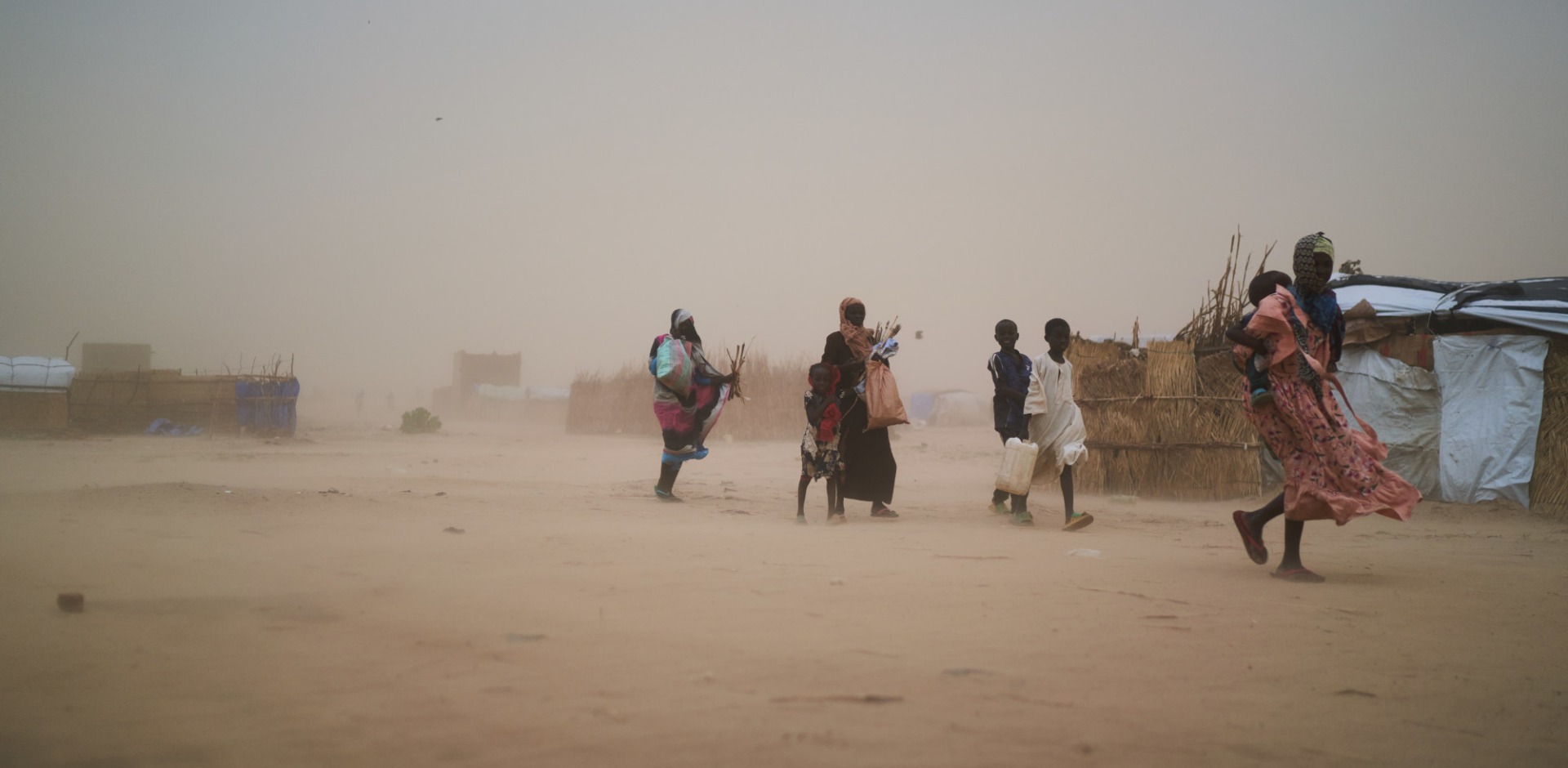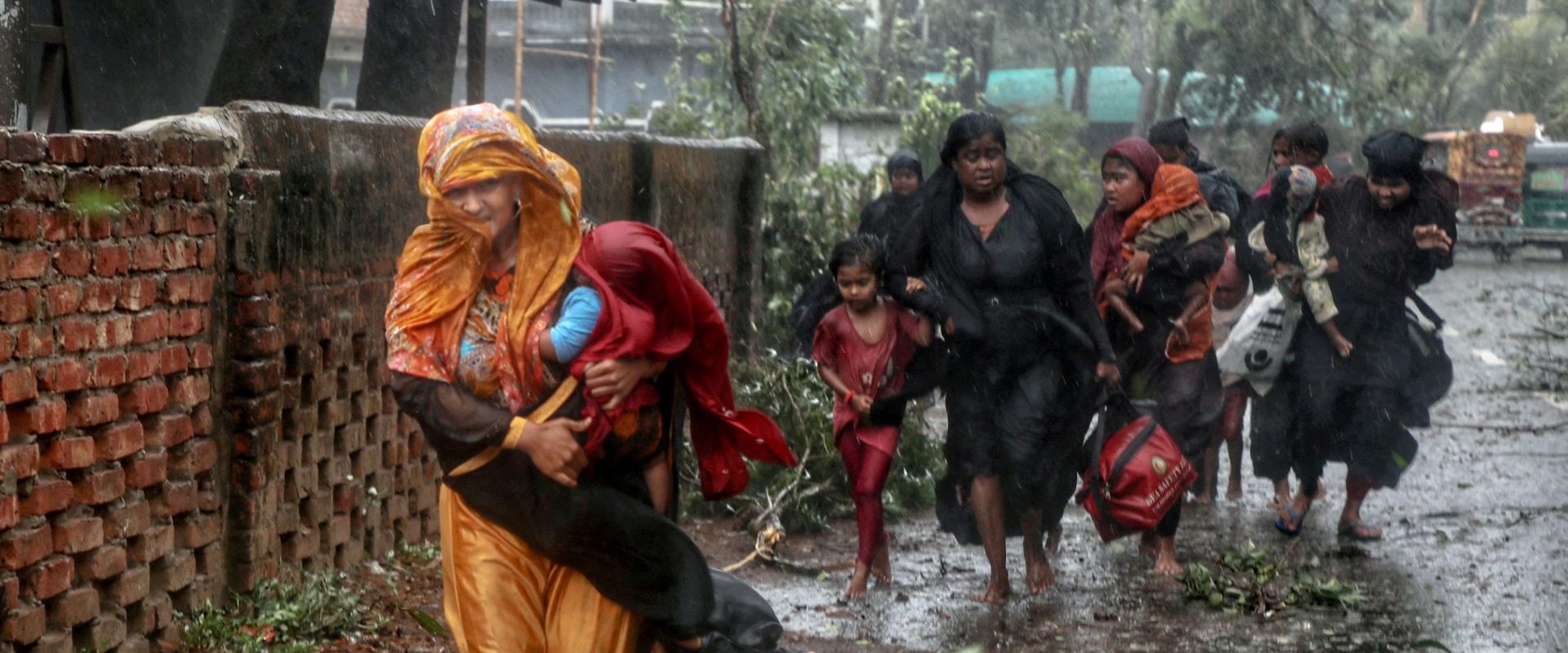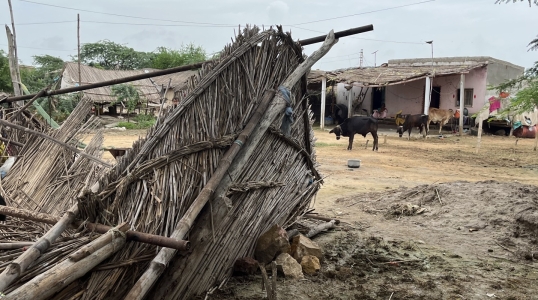
FAMINE IN SUDAN

Cyclone Mocha struck the coasts of Bangladesh and Myanmar on May 14, causing significant damage. Action Against Hunger teams are assessing needs and preparing to provide emergency support.
With heavy rains and winds as strong as 150 miles per hour, Cyclone Mocha hit the coasts of the Bay of Bengal on Sunday near Sittwe, the capital of Myanmar’s Rakhine State, and in Cox’s Bazar, Bangladesh. Prior to the storm, more than seven million people were in need of humanitarian assistance in the affected areas. Despite multiple evacuations and efforts in recent days in Myanmar and Bangladesh to mitigate the damage as much as possible, the impact on already vulnerable and displaced communities is a major concern.
“We are particularly worried about situation that the 232,100 displaced people in Rakhine State in Myanmar face,” said Philippe Hamel, Action Against Hunger’s Regional Director of Operations for Asia. “Many of the camps and displacement sites are located in low-lying coastal areas and have been hit hard by the storm surges caused by the cyclone. Bangladesh seems to have been spared somewhat, but we are closely monitoring the precarious situation of nearly one million Rohingya in refugee camps in Cox’s Bazar.”
Following the cyclone, Action Against Hunger deployed an emergency team to conduct initial assessments in Teknaf, Cox’s Bazar, Bangladesh. They report observations of a significant number of destroyed or damaged shelters and the partial or total destruction of water and sanitation structures. We are planning to respond quickly to meet these urgent needs.
In Rakhine State, Myanmar, the situation is more concerning. The cities of Sittwe, Pauktaw, Buthidaung, and Maungdaw appear to be the hardest hit.
“Telecommunications in Myanmar are still a challenge, but initial information from the field indicates that many electricity poles are damaged, and many trees have been uprooted and are blocking access roads to Sittwe, a city severely affected by the cyclone. We fear that a significant number of water and sanitation structures have been destroyed,” said Hamel.
In Sittwe, Action Against Hunger’s office and warehouse have been damaged and flooded. Our top priority is to repair these buildings so that our team can begin assessments and provide humanitarian support to communities that have been affected by the cyclone.
“The destruction of essential water, sanitation, and hygiene facilities — combined with overcrowded evacuation shelters, continued displacement, and potential relocation — greatly increases the risk of waterborne disease outbreaks. Access to shelter and food must be prioritized, along with increased access to water, sanitation, and hygiene,” added Hamel.
In the coming days, the cyclone is expected to move inland, bringing heavy rains and increasing urgent humanitarian needs. More than one million displaced people are at risk, particularly in northwestern Myanmar. Displaced people in this area are already living in precarious conditions in camps, settlements, or in the forests, often without adequate shelter.
Action Against Hunger has been working in Myanmar since 1994, implementing nutrition, food security, water, hygiene, and sanitation programs in Rakhine State.
In Bangladesh, our operations in began in 2006 and, in recent years, we have focused on meeting the needs of Rohingya refugees and host communities in Cox’s Bazar. Our teams are also working in Sathkira and Barguna to build the capacity of local communities to face and respond to natural disasters.



Join our community of supporters passionate about ending world hunger.